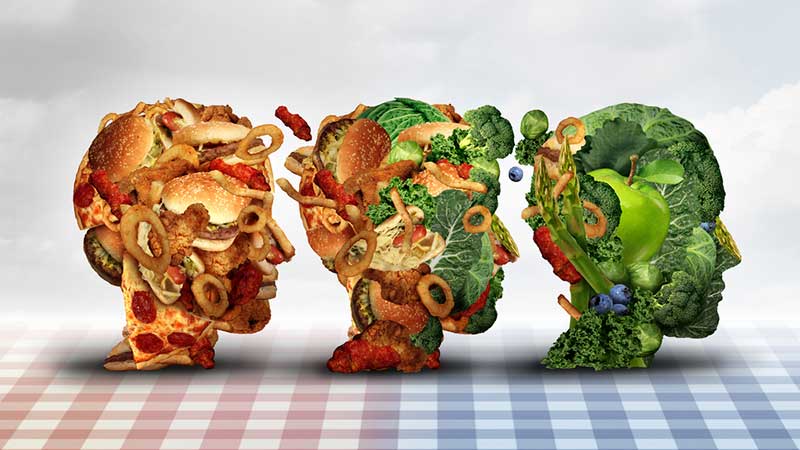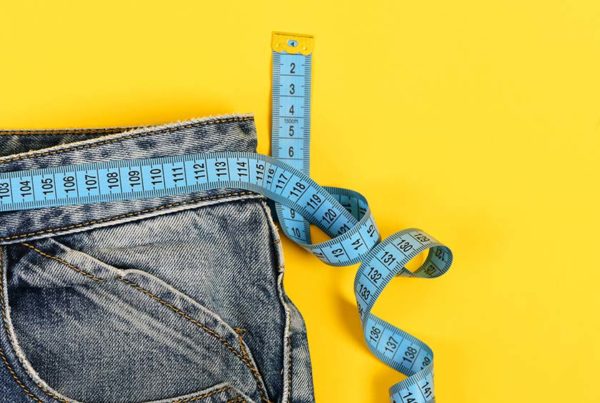
It’s almost hard to believe that not long ago people smoked cigarettes on airplanes, in restaurants and bars, at their worksites and even inside hospitals. In fact, doctors often appeared in tobacco print ads in the 50s. And long before that, even Olympic athletes endorsed cigarettes. But the transition from a smoking society to one that places even more strict restrictions on where one can smoke, including parks, schools, theatres, and multi-family apartments, has been slow and litigious, despite decades-old knowledge of how harmful tobacco can be.
Could a similar process be used for better or healthier eating? With a concerted effort, it’s possible to make a mass transition to improve people’s dietary habits. Certainly, smoking and junk food share similar unhealthy aspects. This is one reason why some of the warriors from the legal battle to ban smoking in many locations, a war that was essentially won in many countries, are now poised to take on the bad food giants of the industry. But a new front has formed.
In a recent issue of the Journal of the American Medical Association (“Changing Eating Habits for the Medical Profession,” JAMA, September 12, 2012) there was a commentary on the health of doctors, in particular, their eating habits. The authors, three MD’s headed by Lenard Lesser of the Palo Alto Medical Foundation Research Institute, make the claim that the medical profession was significantly influential in reducing the problem of smoking throughout the U.S. They say the same could be done for diet. By eating better, doctors would be setting an example for their patients, and, like their influence on smoking, the positive power would overflow into the general public and even the food service industry, where healthy changes could easily be made.
Doctors are not immune to being unhealthy, perhaps half are overfat and at least as many have poor fitness by leading sedentary, non-active lives. In addition to positively influencing patients, doctors who improve their diet would no doubt significantly increase their own overall health and productivity.
It’s bad enough when a family medical doctor presents a poor image of health, but many alternative practitioners are just as guilty, and often while emphasizing healthy lifestyles to their patients. These professionals include chiropractors, acupuncturists, massage therapists, and nutritionists. Moreover, those in all other health professions should set the same example of healthy habits too, including dieticians, physical therapists, dentists, psychologists, physician’s assistants, nurses and others.
All health care professionals in every discipline should lead the way for a healthier world by setting an example for all to see.
For many years I regularly lectured on various aspects of healthy dietary habits, nutrition and exercise at professional conferences. Despite my requests for healthy food at these events, most lunches and snacks provided were junk food—the usual fare of sugary treats, and refined carbohydrate foods. I always brought my own food or found alternatives.
While lecturing, it’s easy to pick out the people in an audience who are less healthy, especially after eating junk food, particularly those who get sleepy or lose concentration. In fact, the JAMA authors noted that doctors consuming high glycemic, unhealthy foods have adverse affects on learning, attentiveness and patient care.
In addition to healthcare workers, bus drivers, pilots, commuters and others who operate machinery often find themselves in situations where post-meal loss of concentration could result in human error. With improved diets, better brain function could be significant, with the potential for fewer accidents, bad judgment and other problems costing lives, health and billions of dollars.
If we really wanted to change an entire population’s eating habits, which could be as profound as those associated with the dramatic reductions in cigarette smoking over the past decade or two, real changes would have to made, albeit simple ones.
The JAMA article emphasized that people, including doctors, eat too many calories and that a low-calorie diet might be an answer to improving overall health. But this is not good enough. Exchanging one junk food meal for a lower-calorie junk food version will not solve the problem. This proverbial step-in-the-right-direction is akin to smoking low tar cigarettes instead of quitting altogether.
In fact, there are no “diets” that work—everyone knows that. There is, however, adequate scientific information, and a reasonably good consensus, about the basic ingredients of a healthy diet. It includes avoiding junk food, especially sugar and processed flour, eating lots of fresh fruits and vegetables, and having adequate protein and essential fats. (There are, however, many specific details about foods that most experts would be unable to agree upon, but these should not be significant enough to prevent the average consumers from making adequate dietary changes.)
By eliminating taxes on healthy fresh foods and adding it to unhealthy choices, governments could actually participate in the process along with health professionals in helping people make the necessary dietary changes.
South African health and exercise-science researcher Timothy Noakes, MD, recently discovered he was carbohydrate intolerant, and made the necessary dietary changes that resulted in significant health benefits. By avoiding refined carbohydrates, eating more protein and healthy fats, he says, in an interview in Discovery Magazine, “I am at my lightest weight in 20 years and I am running faster than I have in 20 years.”
Noakes now challenges the conventional dietary guidelines of a low-fat, carbohydrate-based diet, detailing it in the second edition of his book, “Challenging Beliefs.” But some of his peers have openly complained about his recommending so-called unconventional dietary advice.
So not all doctors would be on board with saving the world through dietary improvements, just like the no-smoking campaign had opponents (some, no doubt, were doctors). This despite the many billions of dollars that could be saved in health care costs beginning the first year. Just look at the advisory board for the corn syrup lobby; it’s filled with those who have medical degrees. Others might even be adamant that it’s none of my, or our, business what they personally do, health wise. Fair enough—we won’t include these individuals in our quest.
If health care professionals can change the world—and I have no doubt it can be done—then why not teachers, who educate young people on how to be better adults. We literally are what we eat. And parents too—we all want the best for the world’s children. In fact, why not the sanitation workers, cab drivers, office workers, CEOs and law enforcement employees? Why not everyone?
But everyone is different. The fact is we all have differences in our particular dietary needs. Fortunately, these differences are relatively minor. That’s why suggesting an off-the-shelf “diet” won’t work. However, allowing people to easily figure out how best to eat and exercise for their particular needs is a reality. This involves education, but not medical school—about a seventh grade level.
Those familiar with my articles and books are well aware of what I’m talking about. Many have gone through the process of making the appropriate changes, resulting in feeling better, improved health, losing weight and body fat, being more productive, and improving overall human performance. So you can use this article to help spread the word—send it to your doctor, nurse, teacher, parent, son, daughter, neighbor, boss, employee or anyone in need.
For those needing a place to start—click any of the following articles: Eating 10 servings of fresh vegetables and fruits a day. Jumpstart your metabolism to burn more fat. Sugar addiction is real. Of course, The Big Book of Health and Fitness is a guide to help readers individualize their diet and workouts to best match their particular needs.
Dr. Philip Maffetone is an internationally recognized researcher, educator, clinician, and author in the fields of complementary and sports medicine, diet, nutrition, stress management and biofeedback. He is a recipient of the prestigious Statuette award by the International Academy for Child Brain Development, was named “Coach of the Year” by Triathlete Magazine and honored by Inside Triathlon magazine as one of the top twenty most influential people in endurance sports worldwide. Dr. Maffetone has written over 15 books on sports, fitness and health, including “Healthy Brains Healthy Children” (co-authored with Dr. Coralee Thompson) and most recently, “The Big Book of Health and Fitness.” See www.philmaffetone.com for more information.








